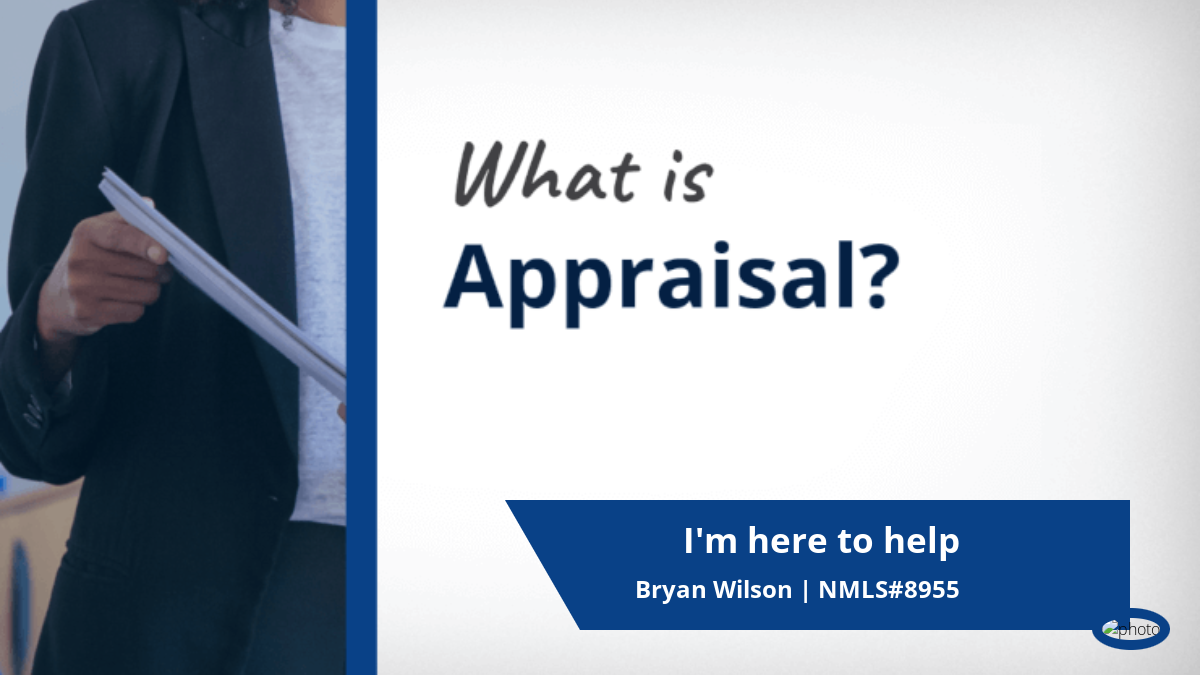Home Loans 101: What is an Appraisal?

A home appraisal is a crucial step in the homebuying and refinancing process, serving several important purposes. Here's why a home appraisal is necessary:
Determine Fair Market Value:
- Buying or Selling: For homebuyers and sellers, an appraisal helps determine the fair market value of a property. This value is crucial for setting the right listing price or making an informed offer.
- Refinancing: When refinancing a mortgage, lenders want to ensure that the loan amount does not exceed the property's current value. An appraisal helps establish the property's current market worth.
Secure Financing:
- Lenders use the appraised value to assess the collateral for the mortgage. It is crucial for determining the loan amount. If the appraised value is lower than expected, it can impact the loan-to-value ratio and terms.
Confirm Property Condition:
- Appraisers evaluate the overall condition of a property. This includes assessing the structural integrity, interior and exterior conditions, and the quality of construction. Any issues identified during the appraisal may impact the property's value.
Compliance with Regulations:
- Appraisals are often required to comply with lending regulations. For instance, many lenders require an appraisal to ensure they are adhering to guidelines set by government-backed entities like Fannie Mae or Freddie Mac.
Negotiation Tool:
- In real estate transactions, the appraisal can serve as a negotiation tool. If the appraised value comes in lower than the agreed-upon purchase price, buyers may use it to negotiate a lower price. Conversely, sellers may use a higher-than-expected appraisal to justify their asking price.
Assessing Property Features:
- Appraisers consider various features of a property, such as the number of bedrooms and bathrooms, square footage, and the overall layout. Specific amenities, like a pool or a renovated kitchen, can also influence the appraised value.
Risk Management for Lenders:
- Lenders use appraisals as a risk management tool. By ensuring that the property's value supports the loan amount, they reduce the risk of providing loans that exceed the property's actual worth.
Legal and Tax Purposes:
- Appraisals may be required for legal or tax purposes. In legal cases, such as divorce settlements or estate planning, an accurate appraisal is essential to determine equitable distribution. For tax assessments, local authorities may use appraisals to calculate property taxes.
Home Equity Loans and Lines of Credit:
- When homeowners apply for home equity loans or lines of credit, an appraisal determines the property's current value. This helps establish the maximum amount of credit the homeowner can access.
A home appraisal is a comprehensive assessment conducted by a licensed appraiser to determine a property's value. Whether you're buying, selling, refinancing, or accessing home equity, an appraisal plays a crucial role in ensuring a fair and accurate evaluation of the property's worth.
✅ Benefits of Contract Loan Processing for VA Loans
-
Specialized VA Knowledge
-
VA loans have unique requirements (COE, residual income, funding fee calculations, appraisal requirements).
-
A contract processor experienced in VA loans can spot potential issues early and streamline the process.
-
-
Cost Savings for Lenders
-
No need to hire full-time staff; processors are paid per file.
-
Helps smaller brokerages or lenders manage fluctuating loan volumes without carrying extra payroll.
-
-
Faster Turn Times
-
Contract processors often work remotely and are paid per closed file, so they’re incentivized to move loans quickly.
-
They can push COE requests, follow up on VA appraisals, and ensure VA-specific forms (26-1880, 26-8923) are completed on time.
-
-
Compliance & Accuracy
-
VA has strict guidelines (e.g., allowable fees, seller concessions, and veteran protections).
-
A skilled processor reduces risk of compliance errors that could lead to loan buybacks or funding delays.
-
-
Scalability
-
During high volume seasons (e.g., rate drops, PCS military moves), lenders can bring on extra processors quickly without long-term HR commitments.
-
-
Reduced Loan Officer Burden
-
Lets LOs focus on originating, networking, and serving clients while the processor handles gathering DD-214s, income docs, pest inspection reports (if required), and underwriting conditions.
-
-
Improved Borrower Experience
-
Veterans and active-duty borrowers often value clear communication and speed.
-
A processor who knows the VA process can anticipate documentation needs and prevent last-minute surprises.
-
👉 In short: Contract processors help lenders stay lean, compliant, and efficient, while ensuring veterans have a smoother experience.
Get Your
FREE eBOOK
